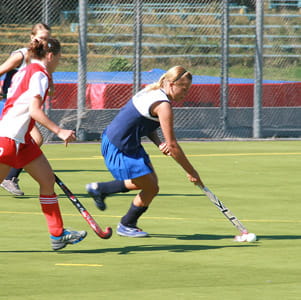
BACKGROUND: A 15-year-old girl – Liz – twists her knee playing field hockey at school. Her mother – Mrs K – is called and brings Liz to the local A&E. Here she waits over an hour to be assessed by a nurse and later is seen by a specialist registrar, Dr J. The doctor examines Liz and notes pain and mild swelling. Liz displays a good range of movement and there is no obvious deformity or neurovascular compromise.
Dr J sends Liz for an X-ray which reveals no evidence of bony injury. She advises Liz and Mrs K that it is likely "just a sprain". She provides Liz with a Tubigrip and advises rest and over-the-counter analgesia. Should there be no improvement in the next few days, she advises that Liz attend her own GP for further investigation.
Later that night the pain grows worse and the next morning Liz cannot walk unaided. Mrs K makes an emergency appointment with her GP – Dr L. He examines Liz and diagnoses a probable torn meniscus and refers her to a private orthopaedic surgeon.
An appointment is arranged for the following day. The surgeon examines the knee and an MRI is arranged which confirms a medial meniscal tear. Liz is placed on crutches and prescribed physiotherapy in advance of ACL (anterior cruciate ligament) reconstruction and meniscus repair in three to four weeks when the swelling is reduced.
The surgeon expresses "surprise" that the diagnosis was missed in A&E and that there was no onward referral to an on-call orthopaedic specialist.
A week later the hospital receives a letter of complaint from Mrs K in regard to her daughter’s treatment in A&E. She is critical of the decision to send Liz home without a referral, considering it might have further damaged her knee.
ANALYSIS/OUTCOME: Dr J is required by the hospital to make a statement in regard to her care of the patient and contacts an MDDUS adviser for guidance on the wording.
The adviser first reminds Dr J that when responding to a complaint made by a third party it is essential to obtain the subject patient’s consent prior to doing so. Liz at age 15 would be considered competent to provide such consent and Dr J is encouraged to confirm with the hospital complaints officer that this has been obtained.
She is advised to open her statement with an acknowledgement of the family’s dissatisfaction with the care provided and regret for the pain and inconvenience suffered. In setting out her recollection of the examination Dr J is reminded to highlight the source of any significant comments made, for example from review of the contemporaneous medical records, recollections of events, discussions with colleagues and usual practice. It is also helpful to include both the positive and negative findings that led to the clinical diagnosis and management.
In particular the statement should include the rationale behind Dr J's conclusions from the examination that there was no ligamentous injury and that a "wait-and-see" approach was appropriate. The medical records state that the patient managed to walk into A&E and a little more detail on this point could be helpful.
The MDDUS adviser then reviews the statement and makes a few additional suggestions before it is returned to the complaints officer. Nothing more is heard from the complainants on the matter and the case is closed.
KEY POINTS
- A considered response with an expression of regret can often prevent a complaint escalating into a negligence claim.
- Patient notes should include clear rationale behind clinical decisions.
- Ensure that appropriate "safety netting" is recorded in the notes.
This page was correct at the time of publication. Any guidance is intended as general guidance for members only. If you are a member and need specific advice relating to your own circumstances, please contact one of our advisers.
Save this article
Save this article to a list of favourite articles which members can access in their account.
Save to library


